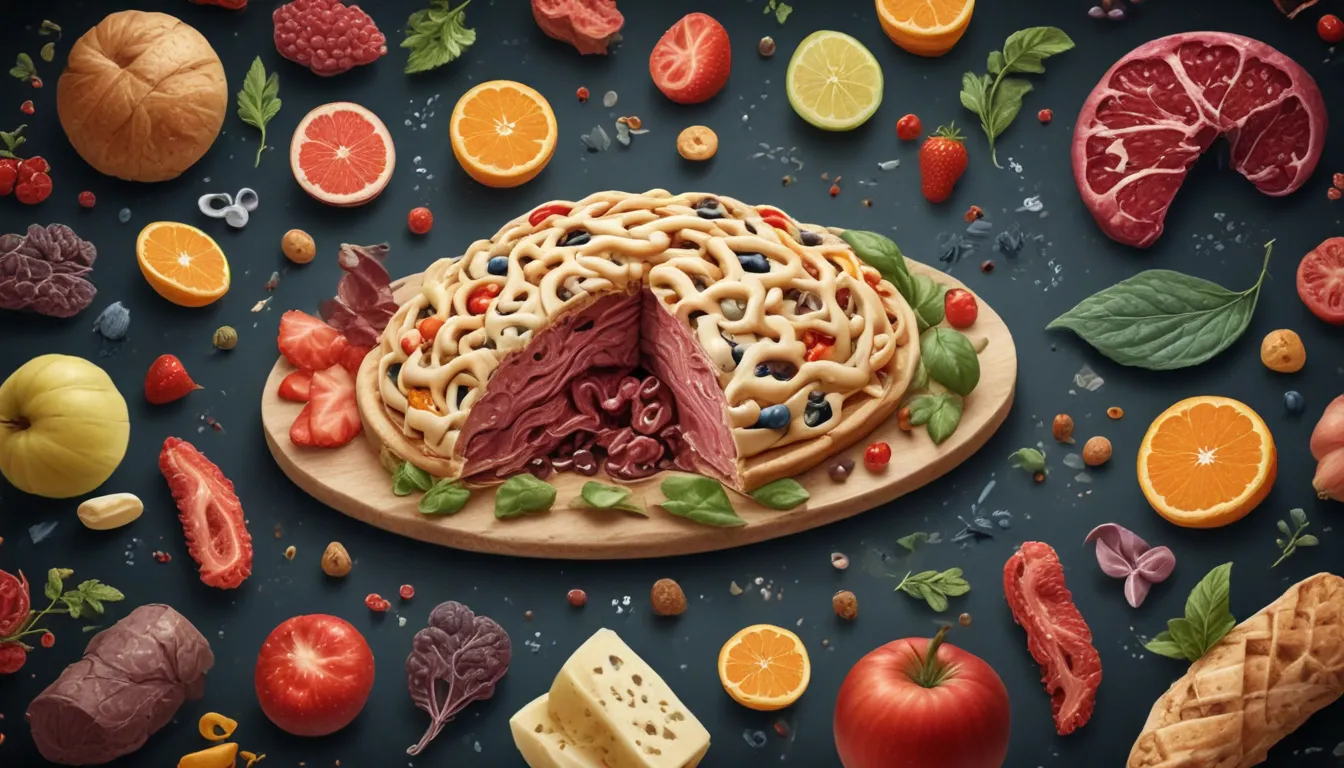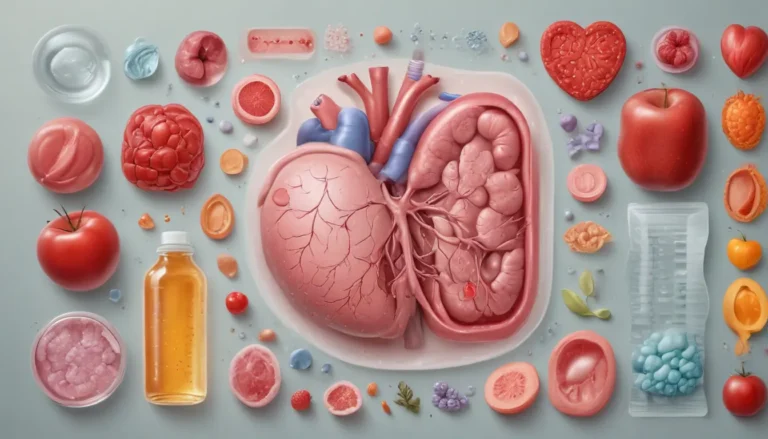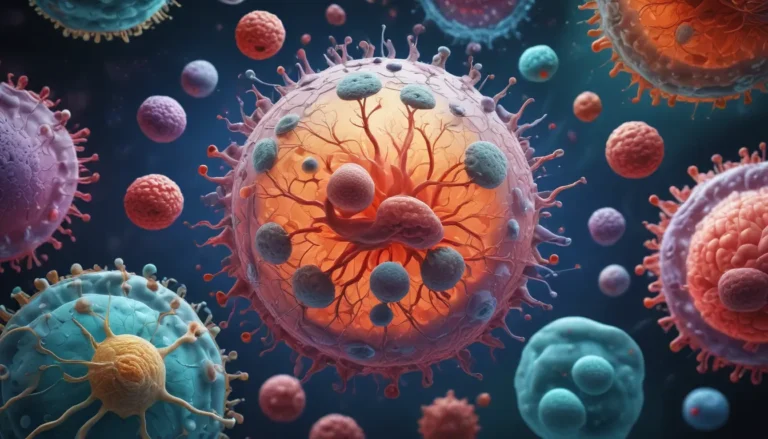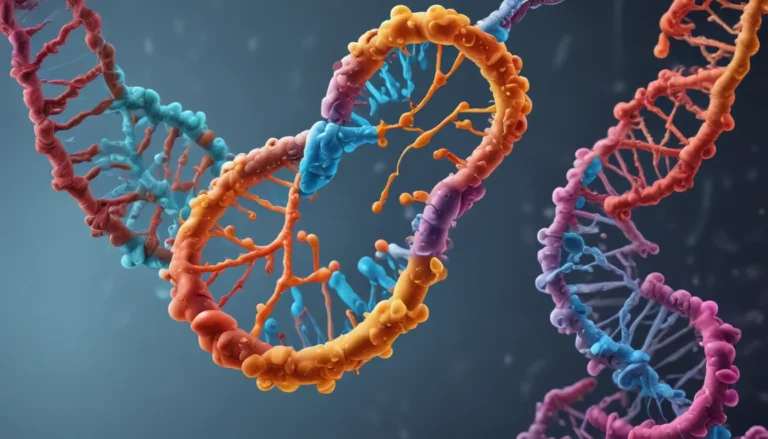A Note About Images: The images used in our articles are for illustration purposes only and may not exactly match the content. They are meant to engage readers, but the text should be relied upon for accurate information.
Are you curious about why you love certain foods and dislike others? Have you ever wondered why some people can handle spicy foods better than others? The answer lies in the fascinating world of genetics and taste perception. Our genetic makeup plays a significant role in shaping our unique preferences for different flavors, from sweet to bitter to savory. In this article, we will take a deep dive into 20 extraordinary facts about the genetics of taste perception that will not only amaze you but also provide valuable insights into how our genes influence our culinary experiences.
The Influence of Genetics on Taste Perception
Genetics have a significant impact on how we taste food. Our genes can make us more sensitive to certain flavors, leading to preferences for specific types of food. Understanding the genetic basis of taste perception can help scientists create personalized diets tailored to individual genetic profiles.
- Genetics shape our taste preferences and influence what foods we enjoy and how they impact our health.
- Certain genes can make us more sensitive to flavors like sweet, salty, bitter, and sour, affecting our overall culinary experiences.
Exploring the World of Supertasters
Some individuals are known as “supertasters” due to having a heightened sense of taste. These individuals possess more taste buds than others, making them exceptionally sensitive to flavors. As a result, supertasters may find certain foods overwhelming or unpleasant.
- Supertasters may have a genetic predisposition to heightened taste sensitivity, influencing their food choices and preferences.
- Genetic variations in taste receptors can impact an individual’s ability to perceive bitterness, explaining why some foods taste more bitter to certain individuals.
Inherited Taste Preferences
Just like other traits, our taste preferences can be inherited from our parents. If your parents enjoy spicy foods, for example, you may also have a genetic predisposition to appreciate those flavors. Specific genetic variations have been linked to preferences for sweet flavors, explaining why some individuals have a “sweet tooth.”
- Umami, the savory taste, is influenced by genetic factors, with some individuals being more sensitive to umami flavors.
- Genetic variations in taste receptors can determine an individual’s sensitivity to spicy foods, highlighting the role of genetics in our ability to handle spiciness.
The Dynamic Nature of Taste Preferences
Our taste preferences are not set in stone and can change over time. Factors such as cultural influences, exposure to new flavors, and personal experiences all play a role in shaping our culinary likes and dislikes.
- Taste disorders, which can be genetically influenced, can impact an individual’s enjoyment of food and overall eating habits.
- Genetics can also influence our cravings for specific foods, contributing to our dietary choices and meal preferences.
Genetics, Environment, and Taste Perception
While genetics play a significant role in taste perception, environmental factors such as cultural influences can also shape our culinary preferences. Exposure to different cuisines and food traditions can broaden our taste horizons and influence our perception of flavors.
- Genetic variations can impact an individual’s sensitivity to salt, affecting how we perceive saltiness in food.
- The interplay of genetics and environmental factors can determine an individual’s aversion to bitter flavors and preference for certain textures in food.
The Impact of Genetics on Health
Our taste preferences, which are influenced by genetics, can impact our food choices and overall health. Genetic variations can increase an individual’s likelihood of developing conditions such as obesity and heart disease, highlighting the importance of understanding how our genes influence our dietary habits.
- Genetic testing can provide valuable insights into an individual’s taste preferences and help tailor personalized dietary recommendations.
- Genetic variations in taste receptors can affect how individuals respond to bitter-tasting medications, impacting treatment outcomes and compliance.
The Promise of Personalized Nutrition
Advancements in genetic testing have opened up new possibilities for personalized nutrition. By understanding how our genetic makeup influences our taste preferences, scientists can develop customized dietary recommendations tailored to individual genetic profiles.
- Taste perception is a complex interplay of genetics and other factors, including past experiences and personal preferences.
- Studying the genetics of taste perception can lead to advancements in personalized nutrition and the development of new therapies for dietary disorders.
As we uncover the mysteries of taste perception through genetics, we gain a deeper understanding of how our genes shape our culinary experiences. From bitter aversions to sweet cravings, our genetic makeup plays a significant role in determining our unique taste preferences. By delving into the world of taste genetics, we can appreciate the complexities of flavor perception and how our genes influence our food choices.
Conclusion
In conclusion, the genetics of taste perception is a captivating field that sheds light on the intricate relationship between our genes, taste preferences, and overall food experiences. Our genetic makeup plays a crucial role in shaping how we perceive flavors and why we gravitate towards certain foods. Through ongoing scientific research, we continue to uncover how genetic variations in taste receptors impact our culinary likes and dislikes.
FAQs
Q: Are our taste preferences solely determined by genetics?
A: While genetics play a significant role, other factors such as culture and personal experiences also contribute to our taste preferences.
Q: Can our taste preferences change over time?
A: Yes, our tastes can evolve over time due to various factors like exposure to new flavors and cultural influences.
Q: Do genes influence our sensitivity to certain tastes?
A: Yes, genetic variations in taste receptors can impact our sensitivity to different flavors.
Q: Can genetics explain sweet cravings?
A: Yes, specific genetic variations can influence an individual’s preference for sweet flavors.
Q: Can genetics influence food choices?
A: Genetics can play a role in determining food preferences and choices to a certain extent.
Embark on a journey through the realms of genetics and taste perception, and discover the incredible impact our genes have on our culinary experiences. Unravel the mysteries of flavor perception and delve into the extraordinary world of taste genetics to gain a deeper appreciation for the complexities of our unique taste preferences.






